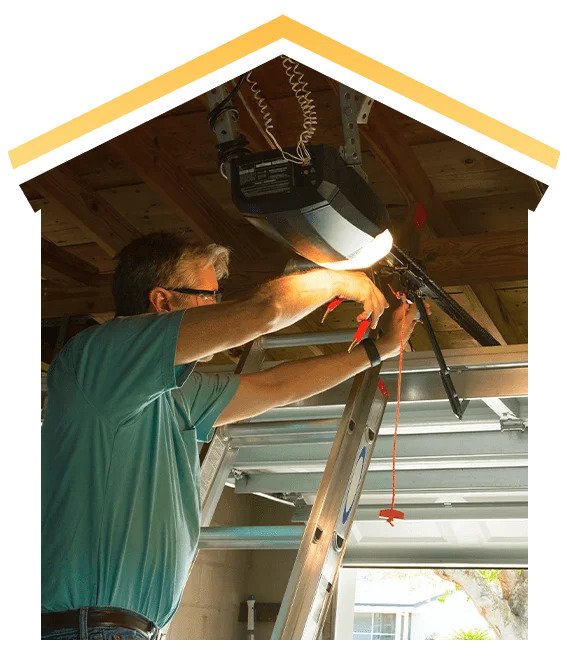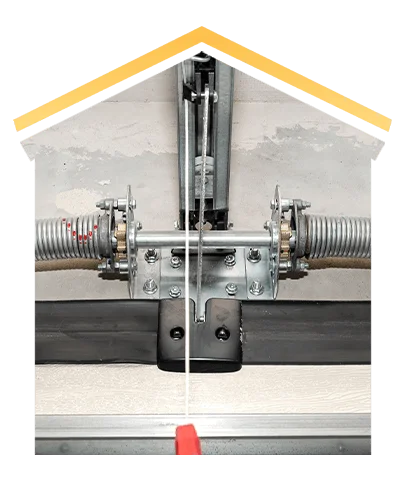Introduction
Garage doors serve as the gateway to our homes, providing not only convenience but also security and shelter for our vehicles and belongings. However, when these essential mechanisms fail, it can create a significant inconvenience and even pose safety risks. So what do you do when your garage door refuses to cooperate? In this comprehensive article, we will explore the ins and outs of emergency repairs for garage doors. Whether it's a broken spring, malfunctioning opener, or misaligned tracks, we've got you covered.

What is Emergency Repairs: What to Do When Your Garage Door Fails?
Emergency repairs for garage doors involve immediate actions taken to rectify issues that impede their normal functioning. This could range from simple DIY fixes to contacting professional Construction Services in Asheville for assistance. Understanding how to respond effectively during such emergencies can save you time, stress, and potentially costly repairs.
Common Garage Door Problems You Might Encounter
1. Broken Springs
One of the most common issues with garage doors is broken springs. These components bear the weight of the door and are under immense tension.
- Signs of Broken Springs Loud noise when opening or closing The door seems heavy It won't open at all
2. Malfunctioning Opener
If your garage door opener fails, it may be due to power issues or internal malfunctions.
- Indicators of Opener Issues Remote doesn't work Wall switch failure Intermittent responses
3. Misaligned Tracks
Tracks help guide your garage door as it opens and closes. If they're misaligned, it can cause substantial problems.
- Symptoms of Misalignment The door makes grinding noises It gets stuck mid-operation Visible gaps between the track and rollers
4. Damaged Panels
Garage doors can suffer from physical damage due to weather or accidents.
- How to Identify Damage Dents or cracks on panels Warping due to moisture exposure Unusual noises during operation
Initial Steps When Your Garage Door Fails
1. Stay Calm and Assess the Situation
When faced with a malfunctioning garage door, first take a deep breath! Panicking won’t help anyone; instead, evaluate what might be wrong.
- Is there any visible damage? Are there unusual sounds?
2. Disconnect Power Supply
Before taking any further action, disconnect the power supply to avoid any potential hazards while investigating the issue.
- Unplugging the unit ensures safety. If it’s an automatic opener, remove its battery backup if applicable.
DIY Solutions for Common Problems
1. Fixing Broken Springs
If you're comfortable with tools and have some experience with repairs:
- Tools Required: Wrench set, safety glasses.
Always prioritize safety; if unsure about handling springs yourself, contact professionals offering reliable Construction Services in Asheville.

2. Troubleshooting Your Opener
For a malfunctioning opener:
- Check batteries in remote controls. Inspect wiring connections for wear or disconnections.
3. Realigning Tracks
To realign tracks:
Use a rubber mallet gently to tap back into place. Ensure all screws are tight so that tracks remain stable.When To Call Professionals for Help?
Sometimes DIY isn’t enough! Here are signs it's time to call in experts:

- Multiple issues at once (springs & motor). Complex electrical problems.
Professional intervention often means less hassle in the long run!
Preventive Maintenance Tips for Garage Doors
Regular maintenance keeps your garage door functioning optimally:
Lubricate moving parts quarterly. Inspect springs every six months. Clean tracks regularly to ensure smooth movement.Emergency Tools You Should Have Handy
Keeping certain tools around can make emergency repairs smoother:
| Tool | Purpose | |---------------|------------------------------------------| | Screwdriver | For tightening screws | | Wrench set | Necessary for adjusting various parts | | Lubricant | Keeps moving parts functioning well | | Pliers | Useful for gripping smaller components |
Understanding Garage Door Mechanisms
It’s essential to grasp how your garage door operates:
Springs provide lift assistance. Tracks guide movement up/down. Openers control operation via remotes or wall switches.
FAQ Section
Q1: How much does it cost to repair a garage door?
A: Costs vary widely depending on the issue—ranging from $100 for minor adjustments to $800+ for complete replacements.
Q2: Can I replace my garage door springs myself?
A: While it's possible if you're experienced, it's safer and often recommended to hire professionals due to associated risks.
Q3: Why is my garage door making noise?
A: Noises often indicate loose parts needing lubrication or misalignment requiring adjustment; regular maintenance helps prevent these issues.
Q4: How often should I service my garage door?
A: An annual inspection is ideal; however, more frequent checks are advisable if you use it daily or notice performance changes.
Q5: What should I do if my garage door gets stuck halfway?
A: First, check sensors (if equipped) Garage Door Supplier and then inspect tracks; if unresolved, consider calling an expert immediately.
Q6: Is it worth upgrading my old garage door?
A: Absolutely! Newer models offer enhanced security features, better insulation options, and overall improved functionality that could save you money long-term.
Conclusion
In conclusion, dealing with a malfunctioning garage door doesn't have to be a nightmare! By following these tips on emergency repairs—combined with regular maintenance—you can navigate through these situations more confidently than ever before! Remember that while DIY solutions are helpful in many cases, professional help from trusted sources like local Construction Services in Asheville can provide peace of mind when things get tricky! So keep calm and roll up those sleeves—your functional garage awaits!